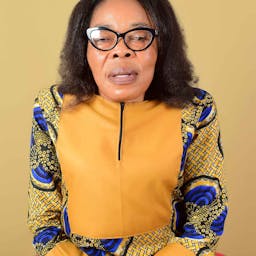Solutions to Challenges: Creating Change
Jan 21, 2015
Story
As we prepared to celebrate the International Women’s Day 2011 within our network, we went to a Radio House to create awareness. We asked to see the Officer-in-charge of the metro section, the receptionist, without finding out our reason for the visit, was rather anxious to send us out with these words “the company do not have funds this year for charity, please check back towards the end of the year”. Her comment is a portrayal of idea that visibility for persons with disabilities is only for charity, buttressing societies’ perception of persons with disabilities as mere objects of charity.
On 18 July 2011, I participated in a panel of discussion on two topical issues: The Rights of Persons with Disabilities and The Disabilities Rights Law in Lagos. The discussion was a segment of a three-day workshop on Improving Human Rights Situations in Nigeria. Rights of persons with disabilities, an always neglected issue was brought in this time to create change. During the Q&A time, a human rights activist from an NGO threw the following questions across. “What is the problem with these people with disabilities? What do they want?” “Especially you women, are you asking that men should relinquish their positions to you?” Some panelists were infuriated, but I was not embarrassed! These have been the kind of questions I am confronted with over the years. His questions have always been the type of comments emanating out of immeasurable marginalization, stigmatization and discrimination, which are challenges I encounter in creating change.
The above challenges formed the basis of some of the programs through which we sensitize and educate the public and stakeholders that persons with disabilities are also human and as human beings, deserve the right to live normal life like other citizens. I do explain with emphasis that individuals with disabilities are also persons with extra-ordinary talents who have some skills to contribute for the development of the communities. They therefore deserve to be treated with dignity and respect. Persons with disabilities are also rights holders.
We often carry out educative and mentoring programs that discourage persons with disabilities from street begging.
During one of our international programmes in Brazil, able-bodied volunteers were asked to wear the shoes of disabled persons. A man volunteered to feign blindness. He closed his eyes and walked around the surroundings with a stick after which he narrated his experience. When he was asked to imagine himself to be in that state all through his life, he shed tears and confessed that this is the first time he had a thought like this.
For now, in my Pulsewire journal, I always write articles focusing on disabilities. I also utilize the pulsewire community to reach out, support and collaborate with other members and my facebook blog to project persons with disabilities around the world and their accomplishments. Comments I receive in response are strong indications that through Pulsewire and other online communities, people are appreciating that there are abilities in persons with disabilities.
Celine




